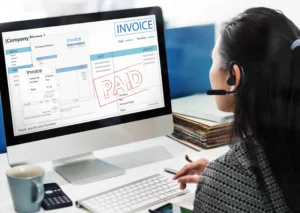As per the UAE government mandate, all mainland and free zone companies must register for corporate tax based on the date and month of license issuance (irrespective of the year). Late registration for corporate tax will attract a hefty penalty of AED 10,000 from the UAE Federal Tax Authority (FTA).
Complying with corporate tax registration can be challenging for new companies. UAE companies can solve this issue by consulting with corporate tax consultants. In this blog, you can learn five essential tips for simplifying corporate tax registration in the UAE:
1. Determine if You are Taxable person
You need to understand that who is taxable in the UAE under the corporate tax regime:
- Mainland companies operating within the UAE.
- Free zone entities engaged in business activities within the free zone carrying on excluded activities or outside the free zone or those conducting business with the UAE mainland.
- Foreign businesses with a permanent establishment in the UAE.
- A natural person who conducts a business or business activity in the state, exceeding annual turnover of AED 1 Million.
Some entities have been granted the exempted entities status under the UAE corporate tax. This category includes government entities, government-controlled entities, and companies engaged in extractive businesses or qualifying public benefit entities.
Moreover, free zone companies can enjoy a 0% tax rate on qualifying income subject to certain conditions.
2. Maintain Accurate Financial Records
Businesses to maintain accurate financial records for ensuring corporate tax registration compliance. The books of accounts must be prepared as per internationally accepted accounting standards, such as the International Financial Reporting Standards (IFRS).
Businesses in the UAE must ensure:
- All transactions are documented, including income, expenses, and profits.
- Financial statements like profit and loss accounts, balance sheets, and cash flow statements are accurate and updated regularly.
- A robust internal accounting system is in place for tracking business activities.
3. Be Aware of Exemptions and Free Zone Benefits
One of the key advantages of doing business in the UAE is the various tax benefits provided, especially to free zone entities. If your company operates in a UAE Free Zone, you may be eligible for a 0% tax rate on qualifying income. However, to avail of these benefits, businesses must ensure compliance with the Economic Substance Regulations (ESR) and other regulatory requirements.
Note these points:
- Not all free zone activities are exempt from corporate tax. Income derived from activities conducted with the mainland or activities that do not meet ESR standards may be taxable.
- Regularly assess whether your business qualifies for exemptions based on evolving regulations.
- Understanding and leveraging these benefits can significantly reduce your tax burden while ensuring compliance with the law.
4. Register Within the Deadlines
Registering for corporate tax with the UAE FTA is mandatory. Late registration or non-compliance may lead to penalties. The corporate tax registration must be made within the deadlines stipulated by the FTA.
Key points to consider:
- Keep track of the deadlines for registration and filing corporate tax returns.
- Businesses eligible for a 0% tax rate must register for corporate tax
5. Talk to corporate tax consultants
Tax compliance is challenging for businesses that can’t afford to build a big finance team within the organization. It will be difficult for business owners to keep track of the changing regulations and requirements. This is where corporate tax advisers can come in handy for UAE businesses.
A professional tax expert in the UAE can help you:
- Assess whether your business is eligible for any exemption
- Make you aware of the FTA’s corporate tax registration process
- Assist you with corporate tax planning
- Advise you if a restructuring is necessary for tax optimization
Hire the Best Corporate Tax Consultants in the UAE
Corporate tax registration in the UAE can be challenging for businesses. However, they can simplify it by understanding the legal framework and meeting compliance requirements. By keeping your financial records organized, understanding tax exemptions, and registering on time, you can avoid penalties and focus on growing your business. Consulting with tax consultants such as Tax Gian can also give you peace of mind and ensure that your business is aligned with UAE tax regulations.
Tax Gian is a brand of Jitendra Tax Consultants (JTC), which is a registered tax agent. We can help you plan a strategy for effective corporate tax registration with the FTA. Our consultants are highly experienced and well-versed in the UAE corporate tax law. Contact us today for an insightful consultation.



